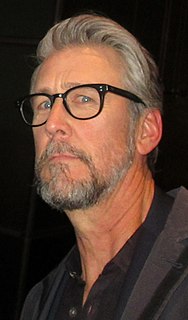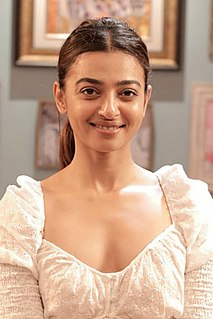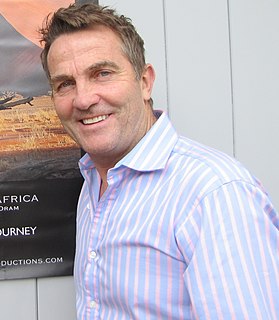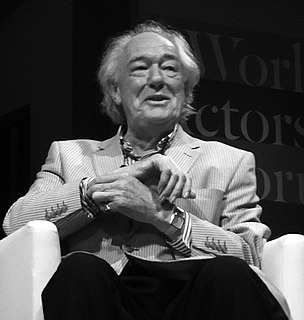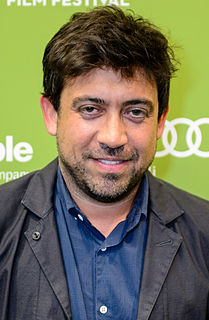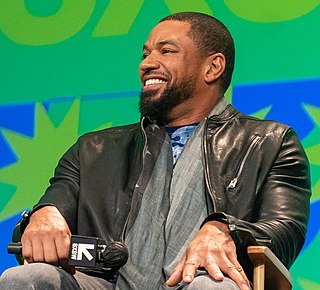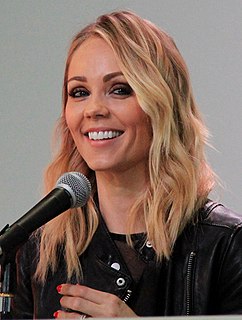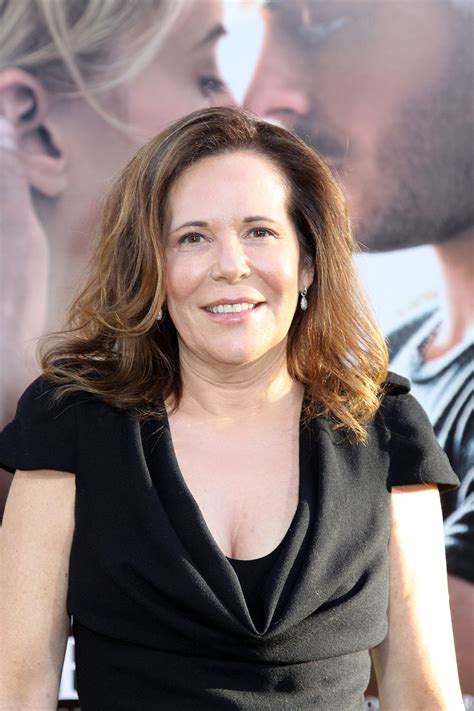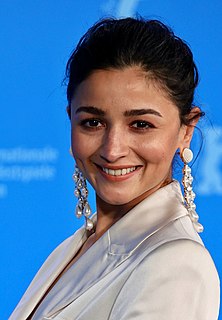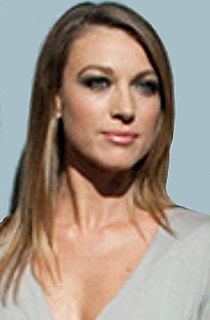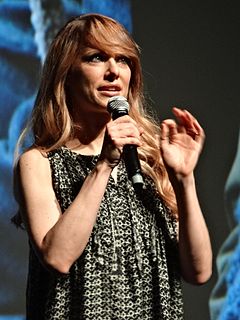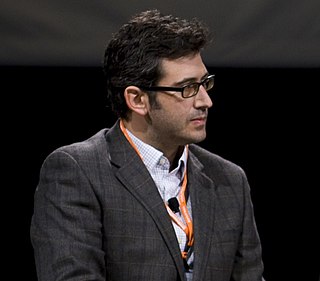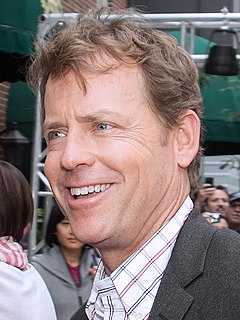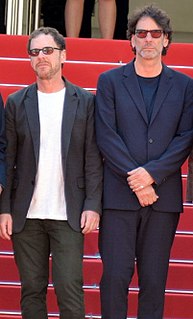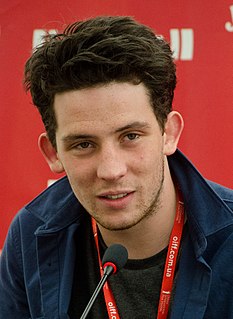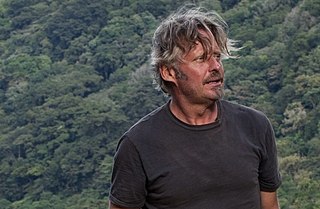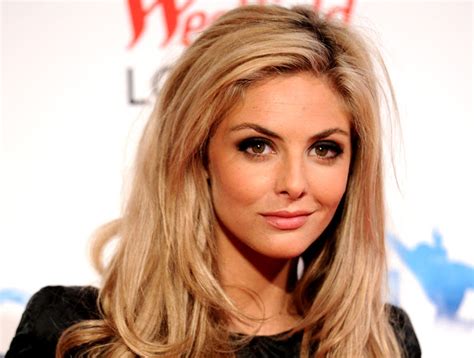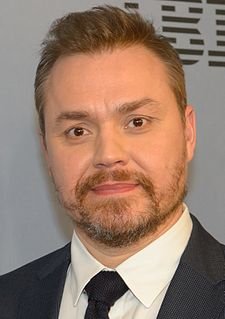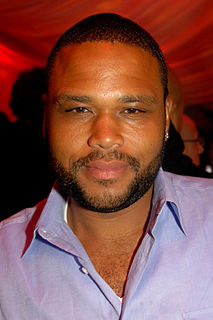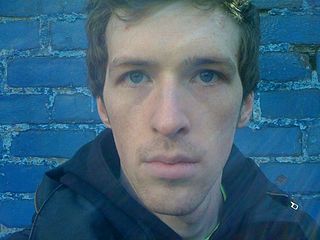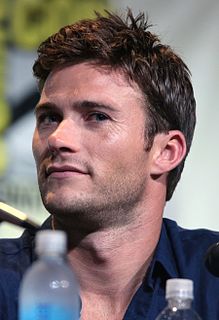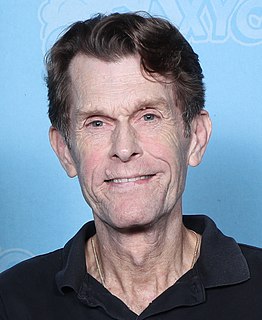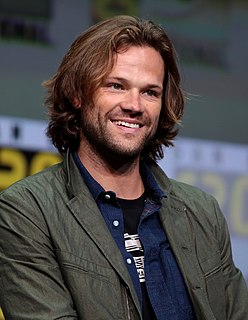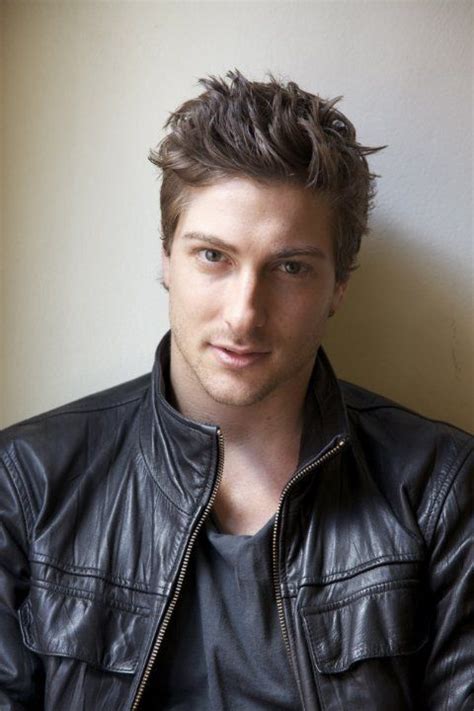Top 1200 Film Actors Quotes & Sayings - Page 20
Explore popular Film Actors quotes.
Last updated on October 12, 2024.
I actually think film and TV are sort of the same thing now. To me they're all motion pictures. There's a camera, a script, other actors and a director. Doing a sitcom is a little different. It's kind of a hybrid, half movie, half play, presented in a proscenium fashion - the camera's on one side of the line, the set on the other, the audience sitting behind the cameras.
I get to work with incredibly talented young filmmakers and students, and their attitudes and relationship with film is still so pure. That re-inspires me and reminds me why I got into it and what I love about film, and allows me a little reprieve from the business side of it. And it rekindles my love of film.
Making a film is like making a mixtape. You're collecting all this stuff and putting your favorite stuff into it: you have actors that you like, characters that you're interested in, moments you want to explore, themes you want to deal with, music that you want to put in. It's a pastiche of all these things that deal with how you see the world.
You're always going to have ups and downs - if you look at the careers of a whole bunch of people I respect, some of them have good movies, some of them have bad movies. I remember Andrew Garfield said that the only power we really have as actors - or one of the main powers we have as actors - is our choices. We can make interesting choices, but as soon as you've made that choice, so much else is in play: the director, the script can change, the other actors. All you can do is try to make interesting choices and, once you're in it, just do the best you can.
When you're working on something where there's usually one sex scene in the film, it all gets a little bit of a gray area and people get a bit uncomfortable and awkward. You just get through it. But, it became very clear on this that that can't happen. There can't be any gray areas on this because there are actors and actresses coming in for a day or a couple of days, as well as people who are there regularly.
You never have any idea where your movie's going to go when you're shooting - you're in this little bubble. Everything you care about is getting the next step right: getting the script right, finding the right actors, shooting it. Then you spend half a year in a dark room editing your film, and you don't talk to anybody.
We have new technology that allows us... After we've blocked it, all the actors usually run over to the monitor and we can see the hallways and what's there. But I find it difficult, because you're in such a large room and you feel so small and inadequate. There's so much space around you and actors always want a prop or something just to make it comfortable.
Though I am born into a film family, I hardly had much exposure to shooting during my growing
years. My first film actually taught me about the breakdown of shots in a film. My aim is to do three
memorable roles in the next five years; films I can be really proud of. And I want to work with the best.
Normally, filmmakers would just write a script and cast people to act as certain characters in the story. But in my way of doing things, I have the actors in my mind already, so I'm trying to borrow something that's unique to them. The characters have a very natural connection to the actors themselves.
I can't wait to do a fully improvised script again, to find people who are really comfortable and into it. It's about the capabilities of the people you're working with, what are their strengths and weaknesses. Some of the most brilliant actors need the spine of the text to work off of, and there's no shame in that; they're actors, not writers.
I see how complicated it is to make a film and how many people are involved and I love the fact that I get to sit in a room on my own and the set costs nothing and the actors cost nothing and I'm the director and it's so simple. You just need a pen and paper to make a book. You don't need a huge budget or a gaffer or a best boy.
I'm a big fan of fiction film where you have a story and you have to transform that into a visual language, basically working with actors and also transforming that into how you pronounce that in the visual language of the shots, the construction of the shots and the lighting. All of that appealed to me from the beginning of my career at the university. When I graduated from the university, I wanted to deal mainly with that, with the visual aspect of the movie.
What interests Sam Mendes are characters and relationships, and he was a genius at giving you the freedom to create the type of character you want, and also to explore and have fun with your fellow actors. For him, characters and relationships are really the heartbeat of the film, and then the action is the backdrop. By developing the characters, he makes you care that much more about the action and going on a journey with the characters.
You don't cast the animal, per se. You have an animal trainer who looks for several of them. That is a different experience than dealing with actors. That is just difficult. It is what you expect from an animal on the set. You just run a lot of film and prompt it to do the right thing, but sit through it doing all the wrong things first. It's just unbelievably boring, frustrating and painstaking to shoot.
I met Michael Snow and Stan Brakhage the second day after I arrived, you know. I had never seen or heard of Brakhage. For me, it was a revolution, because I was well educated in film, but American-style experimental film was known to me in the abstract, and I had seen practically nothing. I had seen a film then that Noël Burch had found and was distributing called Echoes of Silence. It was a beautiful film, three hours long. It goes forever and it was in black and white, very grainy, and I saw that film and I thought...it was not New Wave. It was really a new concept of cinema.
Obviously, once you're finished, you're like, "Okay, I have to make this a movie now, and I need people - bodies to play these parts, and actors to bring this thing beyond a script." But when I was writing it, I wasn't thinking of actors; I was really thinking about creating three-dimensional characters.
While directing in theater that the actors will - I don't know if it's competitiveness or what it is, but they love to make each other laugh. They love to impress each other in rehearsal. They'll try something for a reaction. But in film, you're very often not all together in the room at the same time. You're shooting one day, somebody else is shooting the next. It's a totally different dynamic.
The core plot of 'Mercury' is so gripping that when I thought of making it as a silent film, it only made it more interesting. Once I finished writing the first draft, making a silent film that's both thrilling and engaging seemed possible. When the film team read the final script, they felt the same.
I don't think any actors love taking their clothes off on film, unless you're an exhibitionist, which I'm certainly not. Those are the scenes that you actually dread doing. But, so much more goes into this role. As an actress, it's all about reality, and I'm not a prude. I'm not someone who judges other people for taking their clothes off for roles. I'm not going to show everything, but nudity here or there doesn't faze me.
What Clint Eastwood meant was when you are directing and starring in a film, there's a temptation to spend more time on the other actors' performances, and then when you get to your own work, you kind of go, "Oh, yeah, well, let's cut that." And he said, "Take your time and make sure you do your work right." It's especially good advice if you're going from one career to another.
I think that for a lot of actors - especially American actors - to get line readings and to be told and have your director literally act out the part for you is sort of discouraging in a way. It's a very Eastern European thing to do - a lot of directors that I worked with in Russia did that as well. And, I never took that as an insult, as many actors tend to do. To me, I think it's just offering a certain energy - offering their flavor - and, instead of trying to sort of decode and communicate it to you, they just show you their flavor of what it should be.
Film is the packaging of information in cans. Videotape is involved with the feeding back of process. Film rips information away from the situation for use elsewhere. Videotape can be fed back into a given situation and enrich experience. Film extends man as a spectator. Videotape extends man as a cybernator. Film imports information. Videotape implodes indigenous data.
